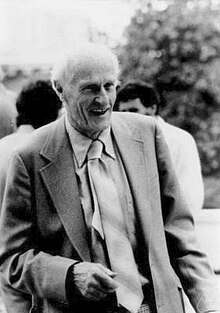This article needs additional citations for verification. (September 2022) |
Stephen Kleene | |
|---|---|
 | |
| Born | January 5, 1909 Hartford, Connecticut, U.S. |
| Died | January 25, 1994 (aged 85) Madison, Wisconsin, U.S. |
| Nationality | American |
| Alma mater | Amherst College Princeton University |
| Known for | |
| Awards | Leroy P. Steele Prize (1983) National Medal of Science (1990) |
| Scientific career | |
| Fields | Mathematics |
| Institutions | University of Wisconsin–Madison |
| Doctoral advisor | Alonzo Church |
| Doctoral students | Robert Constable Joan Moschovakis Yiannis Moschovakis Nels David Nelson Dick de Jongh |
Stephen Cole Kleene (/ˈkleɪni/ KLAY-nee;[a] January 5, 1909 – January 25, 1994) was an American mathematician. One of the students of Alonzo Church, Kleene, along with Rózsa Péter, Alan Turing, Emil Post, and others, is best known as a founder of the branch of mathematical logic known as recursion theory, which subsequently helped to provide the foundations of theoretical computer science. Kleene's work grounds the study of computable functions. A number of mathematical concepts are named after him: Kleene hierarchy, Kleene algebra, the Kleene star (Kleene closure), Kleene's recursion theorem and the Kleene fixed-point theorem. He also invented regular expressions in 1951 to describe McCulloch-Pitts neural networks, and made significant contributions to the foundations of mathematical intuitionism.
- ^ Pace, Eric (January 27, 1994). "Stephen C. Kleene Is Dead at 85; Was Leader in Computer Science". The New York Times.
- ^ In Entry "Stephen Kleene" at Free Online Dictionary of Computing.
Cite error: There are <ref group=lower-alpha> tags or {{efn}} templates on this page, but the references will not show without a {{reflist|group=lower-alpha}} template or {{notelist}} template (see the help page).